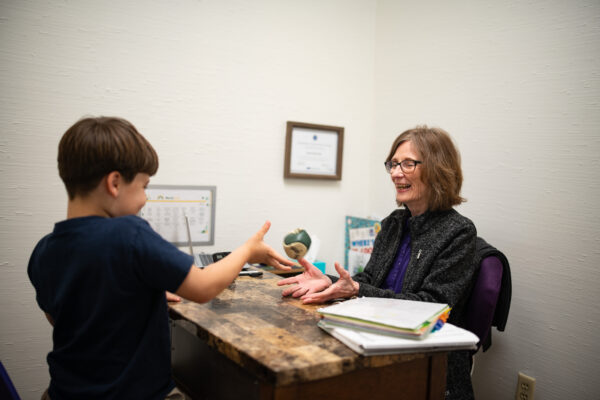While professional help is necessary for many who struggle with ADHD and dyslexia, you can also make some simple lifestyle changes. These changes or brain boosters can greatly help. Here are the top 9 brain booster tips from LearningRx Shreveport Director Donesa Walker. Most of these tips involve free lifestyle changes you can easily fit into your routine. *Please note that LearningRx does not diagnose or treat learning disabilities or disorders.
#1: Set reasonable limits on daily technology use.
- 10 minutes x age of child
- 3 hours or less for adults
#2: Increase nutritional benefits of magnesium and other minerals via a healthy diet. Ask your doctor or see a lifestyle physician.
#3: Drink plenty of water to combat short term memory loss.
#4: Read with your child/family members daily or nightly.
- Play rhyming games, word games, and vocabulary building games often.
- Download the LearningRx Game Pack.
#5: Enjoy a family game night to boost brain skills.
- For games ideas, read our blog “Games Boost Cognitive Skills”.
#6: Keep a positive mindset.
- Read Switch on Your Brain by Dr. Caroline Leaf.
- Engage in positive thought and affirmations during the harder times.
#7: Identify the cognitive weaknesses underlying your specific type of ADHD by getting a cognitive assessment. These are available via local psychologists and LearningRx. LearningRx does NOT diagnose learning disorders. We look at the weak cognitive skills that need to be strengthened. Then we use that information to individualize a brain training intervention.
#8: Try alternative treatment methods for your specific learning disability.
- For ADD/ADHD, talk to your doctor about the use of behavioral therapy or other intervention programs.
- For dyslexia, try intervention programs.
- Work with LearningRx, Masonic Lodge programs, or A Kids Choice Foundation.
- Work with a speech/language specialist. Many schools offer this during the school day.
#9: Train your brain intentionally. You can work with a brain trainer from LearningRx Shreveport or use a focused method on your own. Just like you have a routine for physical exercise, also have one for mental exercise.
For more information about cognitive brain training: contact LearningRx Shreveport. Call 318.797.8523 or email shreveport.la@learningrx.net. You can also learn more on our main website at Get Started.
Previously published in LOLA magazine and The Collective by Donesa Walker. Some changes have been made to make the article more blog friendly.

